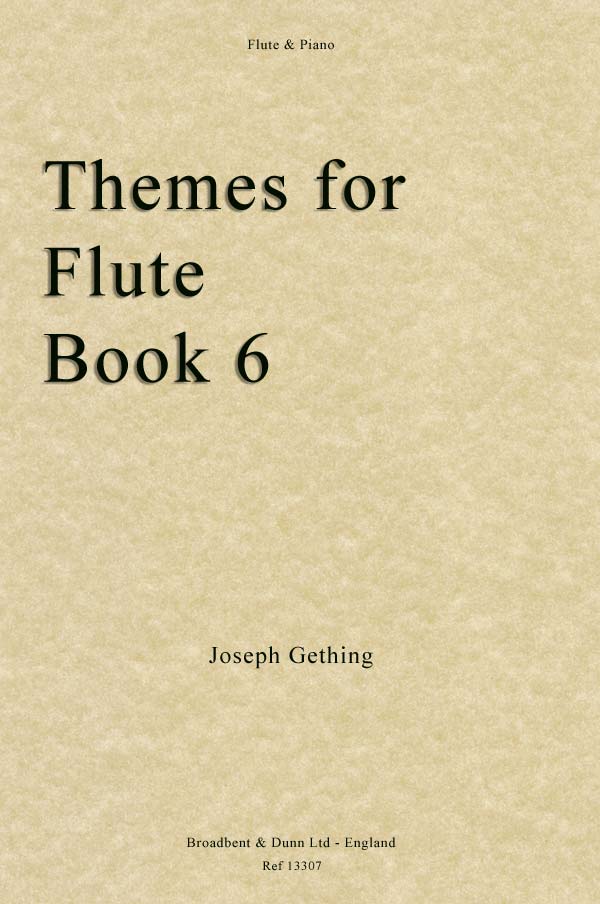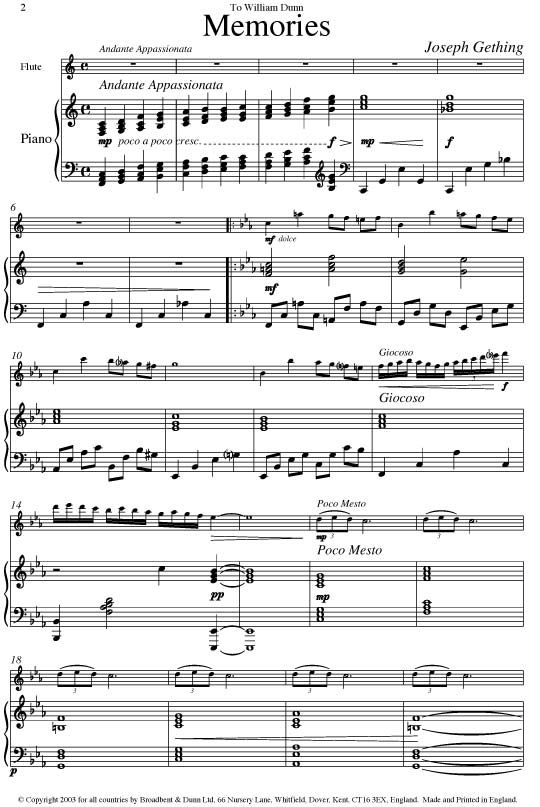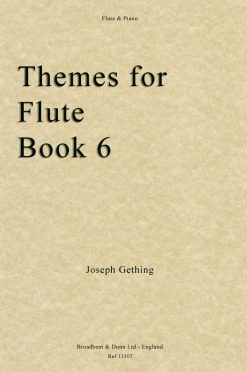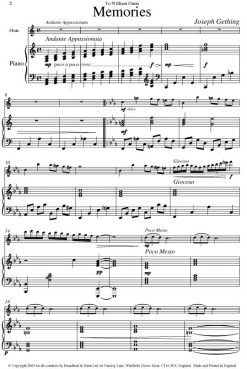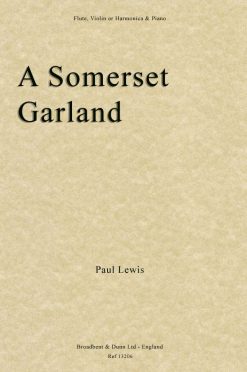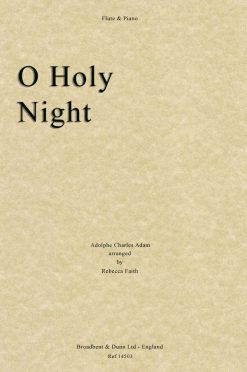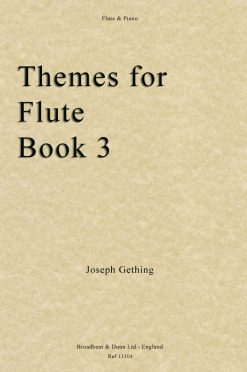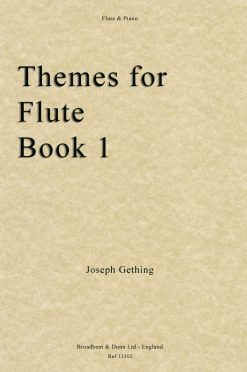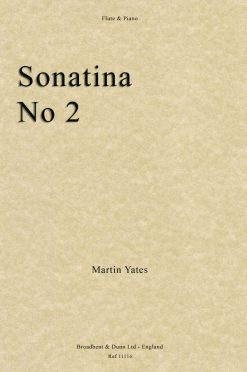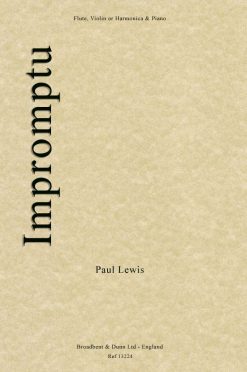£8.95
Piece Description
Additional information
| Media | |
|---|---|
| Composer | |
| Instrumentation | |
| Difficulty | |
| Series | |
| Movement Titles |
Biography
Biography
Gething, Joseph
Joseph Gething began piano lessons at the age of 16 while serving an apprenticeship at a school of building. Under the excellent teaching of Raymond Skinner, who later became a Dr. of Music, he passed his Grade 8 exam in the Theory of Music and Grade 6 in Piano. He was then offered a partnership with Raymond Skinner, playing in some of his concerts. However, Joseph gave up piano lessons turning instead to composition. Several musician friends urged him to seek publication of his works, but he became a clerk of works instead. Many years later his second wife Marilyn contacted Broadbent & Dunn about music scores he had laying about in his music room at home. Prompted by the acceptance of many of his works he once more turned his hand to composition. He passed away in March 2014.
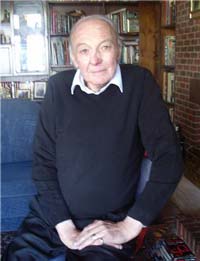
Related products
Arrangements of Somerset folk songs to give them a new lease of life and introduce them to audiences who might never otherwise hear them. Very popular with audiences, its individual movements are useful as fillers or encores. Martock Jig and Langport March are also playable on Piccolo. It is a very direct and enjoyable work and is also versatile, with versions for flute, violin or harmonica with piano accompaniment. The original harmonica version is very idiomatically written by the composer, who was long associated with the late great virtuoso Tommy Reilly. It is folk material very well suited to the instrument. For teaching studios, conservatories, libraries, amateurs and professionals. The last movement of this work Langport March was a Trinity College London Grade 5 Exam Piece for Flute between 2007 and 2022.
Flute & Piano
Flute & Piano
Flute & Piano
Flute & Piano

